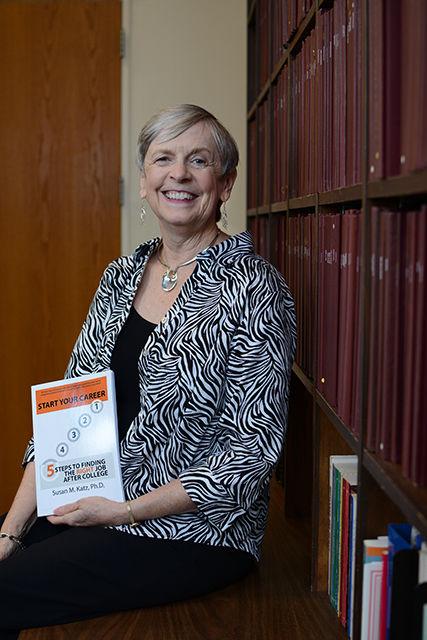For Susan Katz, education exceeds far beyond the classroom. An internship coordinator at NC State, Katz helps students find internships, simultaneously helping them develop professional skills to be successful in finding a fulfilling career after college.
With years of experience in the University’s internship program, Katz has made more than 300 contacts with employers connected to large corporations, small businesses, government agencies and nonprofit organizations –all of which offer some sort of internship opportunity to State students through the professional internship course which she teaches.
Any junior or senior student with a CHASS major or minor is encouraged to enroll in the professional internship class, English 350. To be eligible, students must have at least a 2.5 overall GPA and a 3.0 in their specific CHASS major or minor.
Similar to applying for a job, students in the internship program go through an application process of providing a resume, two writing samples, and two faculty recommendations. Katz works with students needing help in preparing their resumes and cover letters so she can give them feedback before they start sending out their applications to employers.
According to Katz, maintaining good grades and exploring career interests are the best ways to lay a solid foundation in one’s freshman and sophomore years before applying for the professional internship program.
“Have a really good GPA, that’s one thing, and have a really good idea of where you want to do an internship, and then demonstrate some kind of connection to that,” Katz said. “It’s kind of a combination of your course work and your ability to demonstrate outside interests relevant to that field you want to go into. It demonstrates that you have started to investigate this career path.”
In her 2014 book Start Your Career: 5 Steps to Finding the Right Job after College, Katz divulges helpful tips and advice to aid students in finding their first job after college.
According to Katz, Start your Career is a handbook that every college student should read to learn how to begin taking certain steps while still in school, such as searching for internships and future jobs in order to begin planning for life after college.
Through an internship, students have the chance to explore a career in a specific field, develop people skills, and most importantly – create a network that will help them to find a job in the future.
“That’s one of the most important things that happens when you do an internship; you start to build that network and that really is one of the most important things that you need to be doing while you’re still in college: building that network,” Katz said.
Katz has had students intern with the governor’s office, museums, Indy Week, and the Raleigh Public Record, to name a few examples. Guest speakers chat with the professional internship class about their own careers so that students can develop their own ideas about places where they might like to work.
“All the guest speakers and projects [in the class] such as a mock interviews and portfolio-building helped me attain a better idea of how to represent myself,” said Lindsey Schaefer, an NC State alumna who graduated in May with a creative writing degree. “I believe that I learned crucial interviewing and resume skills that helped me get my full time position 3 days before I graduated.”
Katz encourages students to utilize the on-campus resources available while they’re still an undergraduate such as their advisors and the Career Development Center.
“Once you graduate, nobody is ever going to do that for you again, so you have to learn to take some initiative and do some investigating,” Katz said. “Make the contacts and be responsible on your own for this because it’s not easy out there. You have to be able to make a plan and work your plan.”
According to Katz, planning and thinking ahead is what will help a student land a competitive position in their desired career field.
“For every student who doesn’t make a plan, there’s a student who has and they’re the one that’s going to get the job,” Katz said. “The more competitive the workplace environment gets, the more competitive the individual needs to become.”








